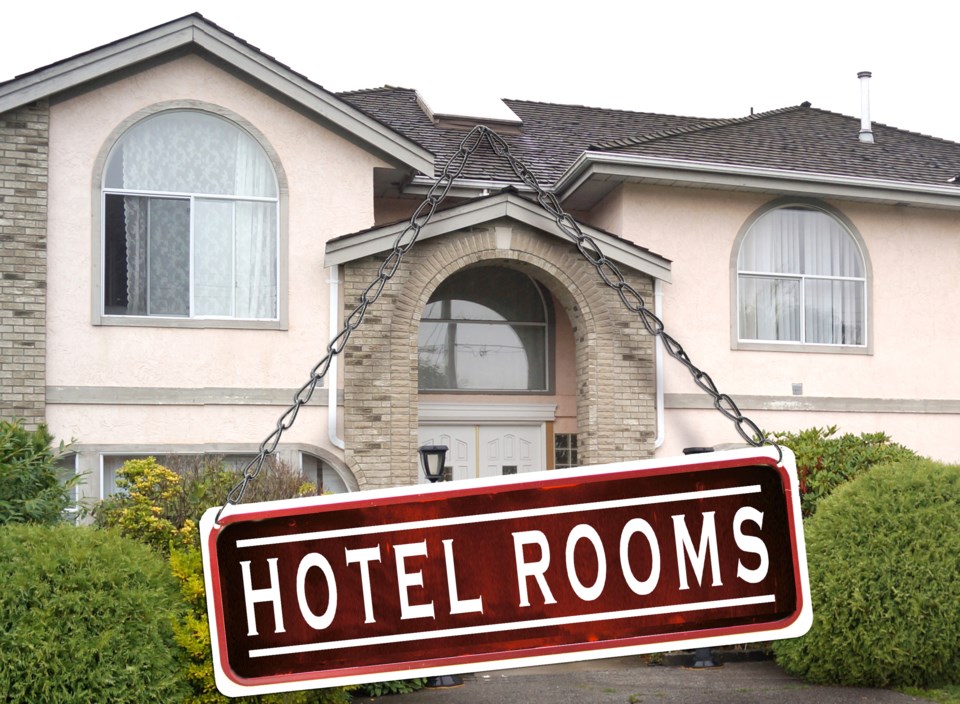Anyone operating a bed and breakfast in Richmond should have to be, at the very least, the owner of the property in question.
On Monday evening, Richmond city council agreed unanimously to instruct city staff to, once again, draft a bylaw that mandates any B&B operator be the owner.
“Not Uncle John,” said Coun. Bill McNulty, of who might be running the aforementioned establishments.
This had been asked for before, but chief licence inspector Carli Edwards twice recommended otherwise, in a series of back-and-forth reports.
Coun. Harold Steves said there are, as it stands, many illegal operations that do not deal with mainstream booking websites (such as Booking.com Airbnb.ca, Expedia.ca etc.).
“We don’t know who’s running them,” said Steves, who has previously suggested staff monitor Chinese language websites, as well.
The draft bylaw, intended to halt illegal house hotels, is expected to proceed to a public hearing on April 18.
On Monday, council again discussed how to address the booming online sharing economy of accommodation and its impact on the city’s dire vacancy rate and the character of single-family home neighbourhoods.
The city intends to maintain its “boarding and lodging” rules, meaning all homeowners (single-family, condo, townhouse) may continue to rent their homes, as a secondary use, to up to two people.
Additionally, the city will allow some single-family homeowners to rent up to three bedrooms to up to six people, but only with a bed and breakfast licence. The licences cannot be closer than 500 metres to one another. This will limit the number of such operations across the city (the Richmond News estimates about 75 licences could be issued).
Adding to these changes will be a host of stiffer, new fines for flouting the rules.
On Monday, council heard diverging opinions on the issue.
Resident Matthew Yung, owner of a detached home with a secondary suite, said he rents a bedroom to support his income.
He said short-term rental hosts earn, on average, $500 per month, in Richmond, according to Airbnb data provided to the Richmond Chamber of Commerce, which supports regulations.
“The short-term rental market supports the local economy,” said Yung, adding complaints are relatively few and far between.
But former Richmond First candidate Andy Hobbs said he wasn’t convinced short-term rentals provided “an overriding greater community good.”
Hobbs said allowing rental of three bedrooms and six guests is generous.
Realtor Lyn Terborg again pointed out that owner as operator is critical. She said lack of oversight could threaten many councillors’ stated goal of maintaining the character of single-family home neighbourhoods. She also called for council to ensure operators had insurance (so far this is only “encouraged” by staff). She maintained it will be difficult to enforce whether three bedrooms are being rented. CIty staff maintain clearer bylaw language will improve such enforcement.
Coun. Linda McPhail said “citizens of Richmond need to be the priority.”
She noted to Yung that he can rent his secondary suite on a monthly basis.
Notably, new, proposed bylaws would ban B&B licences in secondary suites and coach houses, in a bid to maintain more affordable housing options.
The city has hired four new, temporary bylaw enforcement officers to deal with illegal house hotels.
Yet, Coun. Ken Johnston expressed concerns that too many regulations would drive the problem underground.



